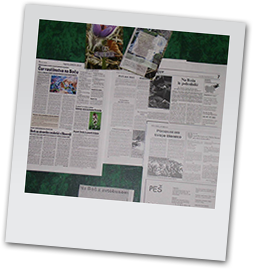Communicating
Communicating is vital in all phases of your strategic communication project. Let’s go back to the start before we focus on communicating in the Executing phase.
Before you start: communicating in your organization
Before you initiate your project, you need to communicate within your organization to get support. You need to involve your supervisors and colleagues in your plan.
An important rule is: first communicate internally, then communicate externally. This prevents raising expectations which cannot be met. And it enables your organization to have One voice when communicating with stakeholders and partners.
Informal, face-to-face communication is more effective for this purpose then memos and reports.
Understanding phase
Open talks, interviews and focus groups with target audiences & stakeholders give you insight in what they know and how they feel about your issue.
Listening and empathy are the skills you need most in this phase.
Designing phase
Round tables and meetings with your potential partners help breaking down your big goal into a doable sub goal and finding common objectives to work on. This process also helps developing working relations with stakeholders.
Executing phase
Frogleaps Strategic communication course focuses on communication to initiate, design and implement projects aimed at sustainability change. We are talking about real change: behavior change resulting in better practices for sustainable development and biodiversity.
Awareness campaigns and education alone do not result in behavior change, in many cases. That’s why these fields of communication are not part of this course. But awareness raising and education are valuable for influencing knowledge and attitudes! So they can be an element in your design as illustrated below and in Our case of Simona.
During the Executing phase your communication is aimed at:
- Involving potential partners in your project
- Redefining your sub goal together
- Briefing partners, consultants and agencies
- Creating word of mouth about your project
- Influencing knowledge and attitudes of target audiences
Let’s fast forward to the Evaluation phase and take a look at the role and means of communicating in this phase:
Evaluation phase
During Evaluation phase you aim communication at getting cooperation for the methods you apply, for instance interviewing, surveys and focus groups.
Reflecting and giving feedback to partners and target audiences about results and future actions is important as well.




